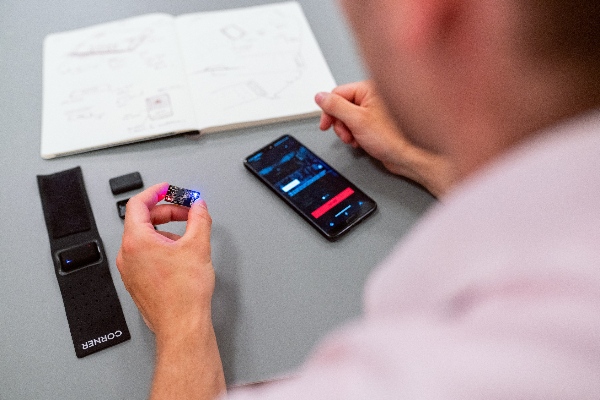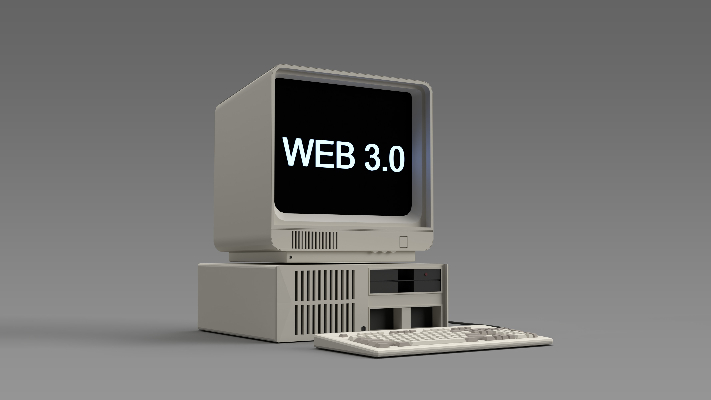IoT Engineer Interview Questions
What you Need to Know


What you Need to Know
The applications of the Internet of Things are growing across a range of sectors as more and more devices are connected and data is shared across a huge variety of systems. The growth of this phenomenon means that there is an increasing need for engineers, designers and developers who understand IoT technology and its applications.
There are plenty of different elements of IoT technology, from the devices and their components that collect data to the software that processes this and the systems that store it. This means that IoT engineers tend to be multi-talented with a range of skills in different areas of engineering as well as a good understanding of and experience with IoT technology.
If you’re an engineering candidate or software developer looking for an IoT engineering job, preparing for job interviews is an important part of ensuring your success in this element of your career. Researching common IoT interview questions and answers is one of the best ways to make sure you feel confident in your interview and give the best impression.
In this article, we share some of the key IoT interview questions that candidates might be asked and advise aspiring engineers and their potential employers on how to get the best out of the experience.

An IoT engineer is someone who works across the IoT stack, potentially completing a wide range of roles working with IoT technology. It’s a role that is needed across a range of sectors in the engineering industry as more companies start to integrate IoT tech into their product or service offering.
Some candidates specialise as IoT software engineers, meaning that they work with the programs and systems that make IoT devices work and connect them. An IoT hardware engineer has a more hands-on role and will design, build and install devices that use IoT technology.
The title ‘IoT engineer’ really refers to a wide range of different responsibilities connected to the Internet of Things. Engineers might work with data, software, infrastructure, security or networking in their role, or a combination of any of those.
IoT engineer jobs involve a variety of responsibilities depending on the industry sector, the role itself and the skills and experience of the individual. Below is a list of possible tasks and responsibilities that an IoT engineer might do as part of their job.

An IoT engineer interview will usually involve some questions that aren’t directly related to IoT technology, as the interviewer will also want to get an idea of your general skills as an engineering candidate and suitability for a position in their company. Here are some of the most common IoT engineer interview questions that you may be asked when applying for a role in this industry sector.
This is one of the more basic IoT interview questions, asking about the typical components that make up an IoT device. Interviewers will usually ask questions like this towards the start of the interview to ease candidates into the discussion, but also use it to assess the base level of IoT knowledge that a candidate has.
Again, this is a basic IoT interview question gauging a candidate’s understanding of the typical processes involved in IoT development. It can be useful to illustrate the different types of testing with examples from previous experience if you have any relevant examples.
This interview question delivers a little deeper into a candidate’s knowledge of IoT technology and assesses what they know about databases. This kind of question is more common when interviewing for roles that are going to involve working with databases, but it’s still good for all candidates to have prepared an answer.
This is another question that will benefit from an answer that uses real-life experience. Where possible, back up your database choices with examples of when you have used them in the past and explain why they were best suited for that particular project.
This type of IoT interview question is used to gauge the candidate’s understanding of wider trends in the industry sector and assess whether they think about the potential applications in other areas. It’s a really good question to have prepared some talking points to, as interviewers will often ask about your thoughts on the future of IoT because it’s a growing industry.
A good answer to this question will touch upon real-life applications of IoT that are being developed at the moment, but then go on to talk about new ways in which the technology could be used. If you can think of examples that relate to the work that the company does, that’s excellent, but it’s not a necessary part of answering the question well.

This question draws on an IoT engineer’s experience working in the industry as well as their understanding of the typical risks of using this technology. It’s a good idea to start by talking about the key risks and challenges that all IoT engineers face, such as security issues, and then go on to give examples of where you have faced these challenges in your work.
To put a positive spin on your answer to this IoT interview question, it’s useful to talk about how you have then mitigated these challenges when working on previous IoT projects. If you don’t have examples, you can still talk about the hypothetical ways that you would overcome these challenges.
IoT device management is an important part of ensuring the security of embedded systems, which is a key concern for IoT engineers. When an interviewer asks this question, they’re asking the candidate to demonstrate their understanding of this element of IoT security.
This IoT engineer interview question touches on quite a technically complex aspect of the technology involved in IoT systems, so is a question that tends to be asked in interviews for more senior positions.
This question is often asked in interviews for IoT engineer jobs as a way of understanding where a candidate’s interests lie and also gauging their overall knowledge of current applications of IoT technologies. It allows them to demonstrate what they know about future developments in the industry sector, which is a good assessment of whether they’re going to be a very engaged employee.
As a candidate, this question gives you the chance to let the potential employer know about what you’re most interested in in the field of IoT technology and share your insight into the latest developments in the industry. If you’ve worked on any personal projects employing this kind of tech, this is a great chance to talk about them.
This question is a broader look into a candidate’s understanding of how IoT technology is used in society and how it may affect the economy. It’s more applicable to engineering candidates that are going to be working in roles with more seniority, as they’ll be expected to know more about and be aware of the wider impact of their work. As well as talking about the general economic impacts, it can also be a good idea to talk about the potential impact in the company’s area particularly.

Reading up on IoT interview questions and answers is a great way to help you prepare to meet a potential employer and enter a job interview feeling confident. You’re unlikely to have responses prepared to every question that you get, but understanding the different topics you might be asked about can help you to have ideas and examples at the front of your mind.
One of the best pieces of advice for an engineering interview is to try and include relevant examples from your previous work experience in your answers to questions. You shouldn’t shoehorn these in to the point where it feels incredibly obvious, but if you’ve got an example of where you’ve applied a technique or approach that you’re talking about, you should bring it up to illustrate that you can put your knowledge into practice.
We’ve listed examples of technical and IoT-related interview questions in this article, but most job interviews will also include more general questions that gauge your personality and investigate the kind of employee you are. When it comes to answering these kinds of questions, remember to be honest but focus on what makes you a valuable candidate. You might be asked to talk about weaknesses, previous problems or things that challenge you, so be sure to include examples of how you’ve overcome these setbacks in your answer, as well as being upfront about them.
As an employer hiring for IoT engineer jobs, you should have a list of technical and general interview questions to ask all of your candidates. Many companies use a similar approach in every interview to assess whether a candidate would be the right fit for the role, whereas technical questions and challenges may be chosen at random or to suit a particular position.
Technical questions should be used not only to ensure that a candidate has the necessary understanding of a topic or area of engineering, but also to assess their genuine interest in IoT technology and how they have worked in this area in previous roles. IoT is a developing industry sector where there’s a lot of potential for innovation and new developments, so as an employer you’ll get the most value out of engineers that are going to be motivated to pursue new ideas in this area.

Job interviews are a necessary part of advancing your career, and doing interview question preparation is one of the best ways to ensure that you’re successful in your efforts. When it comes to IoT engineer interviews specifically, you’ve got the advantage that this role is in high demand right now, but should also consider that genuine enthusiasm for the topic and examples of previous work are the best way to stand out from other applicants.
If you’re an IoT software engineer or an IoT hardware engineer looking for your next career opportunity, or for help with job applications, KO2 can help. We’re a specialist recruitment agency working in the electronic embedded systems sector, with a range of IoT job opportunities available. If you’d like to find out more about how we can help, get in touch to speak to our team.

 Python Developer Job Interview Questions and Answers
Python Developer Job Interview Questions and Answers